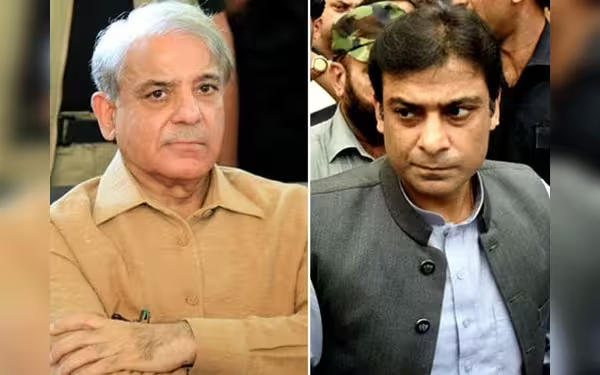Saturday, November 16, 2024 08:43 PM
Shehbaz Sharif and Hamza Seek Relief in NAB Law Amendments
- Shehbaz and Hamza challenge accountability court's authority.
- Legal team cites recent NAB law amendments.
- Case reflects ongoing political and legal struggles.
 Image Credits: tribune.com.pk
Image Credits: tribune.com.pkPM Shehbaz and son Hamza seek relief in Ramzan Sugar Mills case under new NAB law amendments, challenging accountability court's authority.
In a significant legal development, Prime Minister Shehbaz Sharif and his son, Hamza Shehbaz, are seeking relief in the ongoing Ramzan Sugar Mills reference. This case has garnered considerable attention due to its implications for the accountability process in Pakistan. The father-son duo's legal team has filed a petition, arguing that the accountability court no longer possesses the authority to hear the case, following recent amendments to the National Accountability Bureau (NAB) law.
The amendments to the NAB law have sparked a debate about the powers of the accountability courts and the jurisdiction of the NAB itself. The legal representatives of Shehbaz and Hamza contend that these changes necessitate a reassessment of the case, which has been a focal point of political and legal discussions in the country. They have formally requested that the accountability court return the case to the NAB chairman for reconsideration, emphasizing that the new legal framework should be applied to their situation.
This move is not just a legal maneuver; it reflects the broader political landscape in Pakistan, where accountability and governance are often intertwined. The Shehbaz family's legal strategy highlights the ongoing struggle between political figures and the accountability institutions that oversee corruption and misconduct. As the case unfolds, it will be crucial to observe how the judiciary interprets the amended laws and what this means for future accountability cases in Pakistan.
The developments surrounding the Ramzan Sugar Mills reference are indicative of the complex relationship between law and politics in Pakistan. As the legal proceedings progress, they will undoubtedly influence public perception and the political climate in the country. It remains to be seen how the courts will respond to the petition and what implications this will have for the accountability process moving forward. The outcome could set a precedent for similar cases in the future, making it a pivotal moment in Pakistan's legal history.













